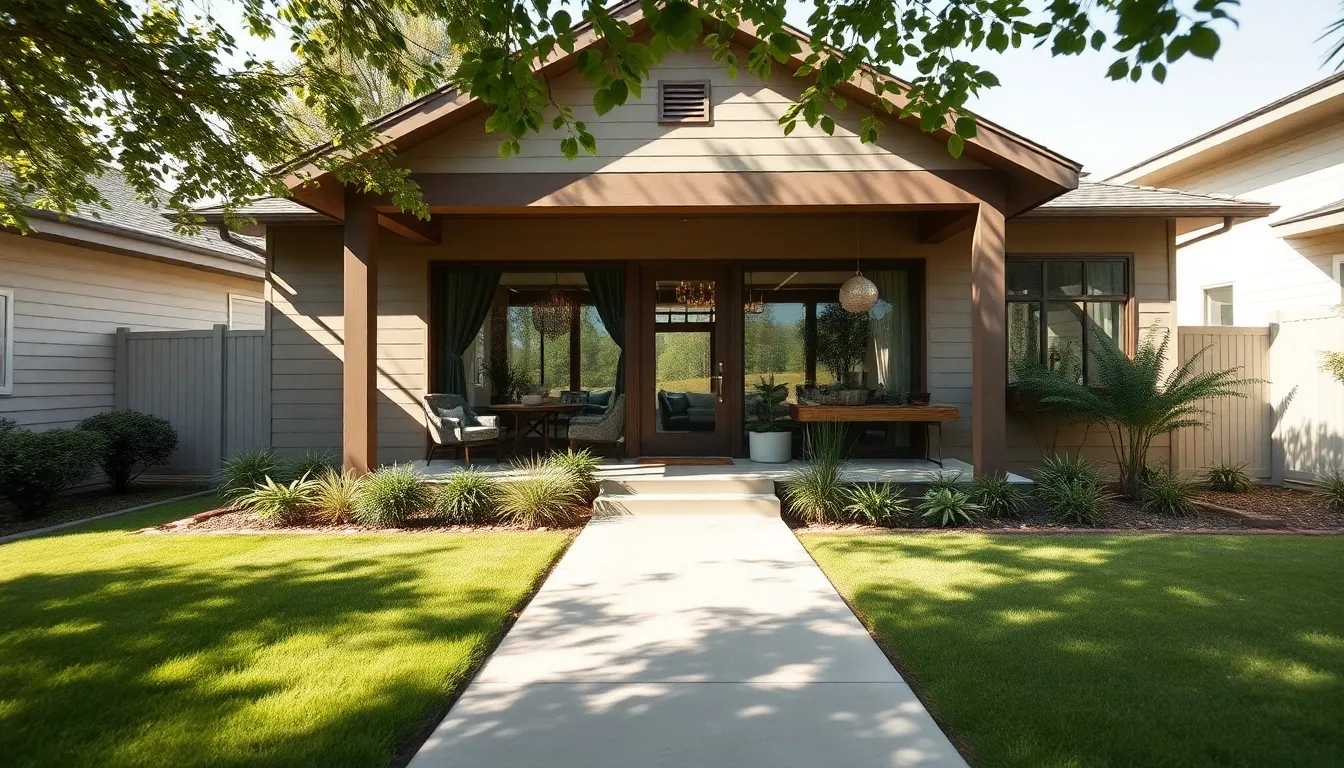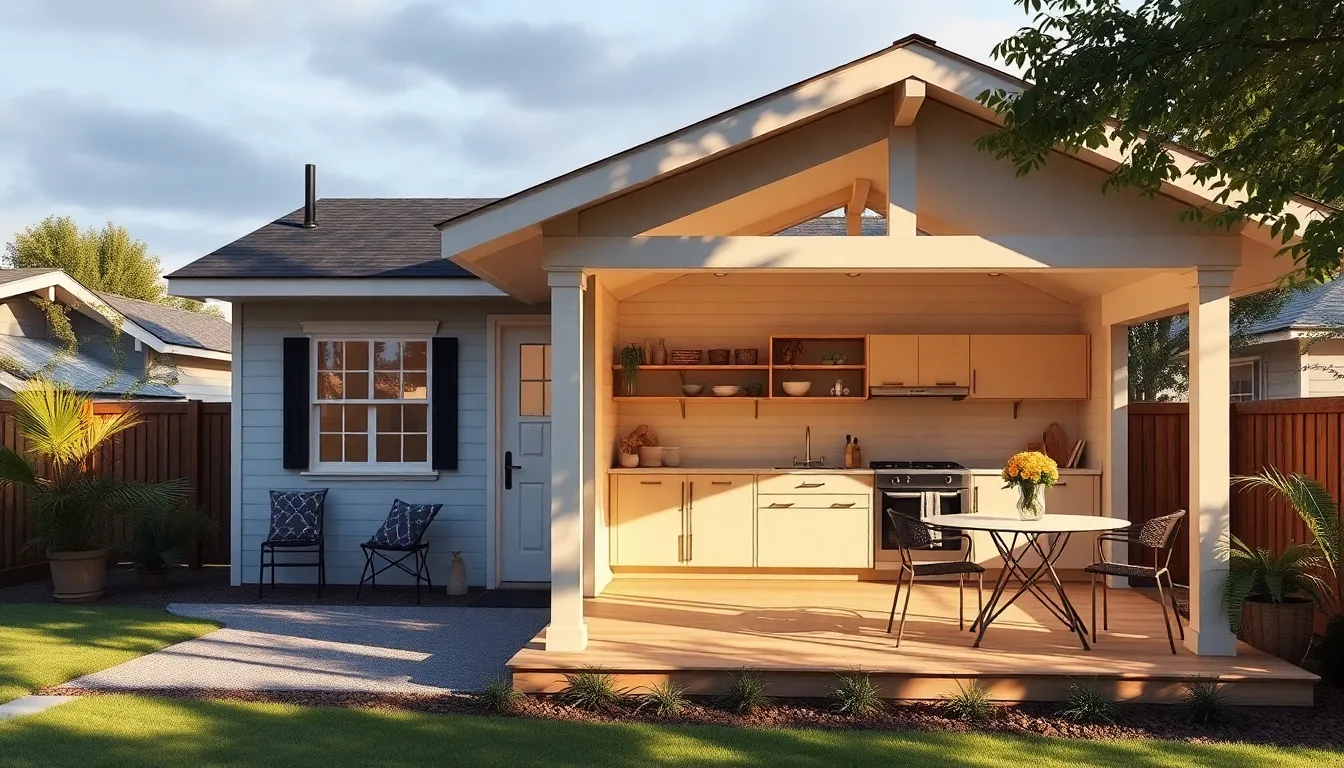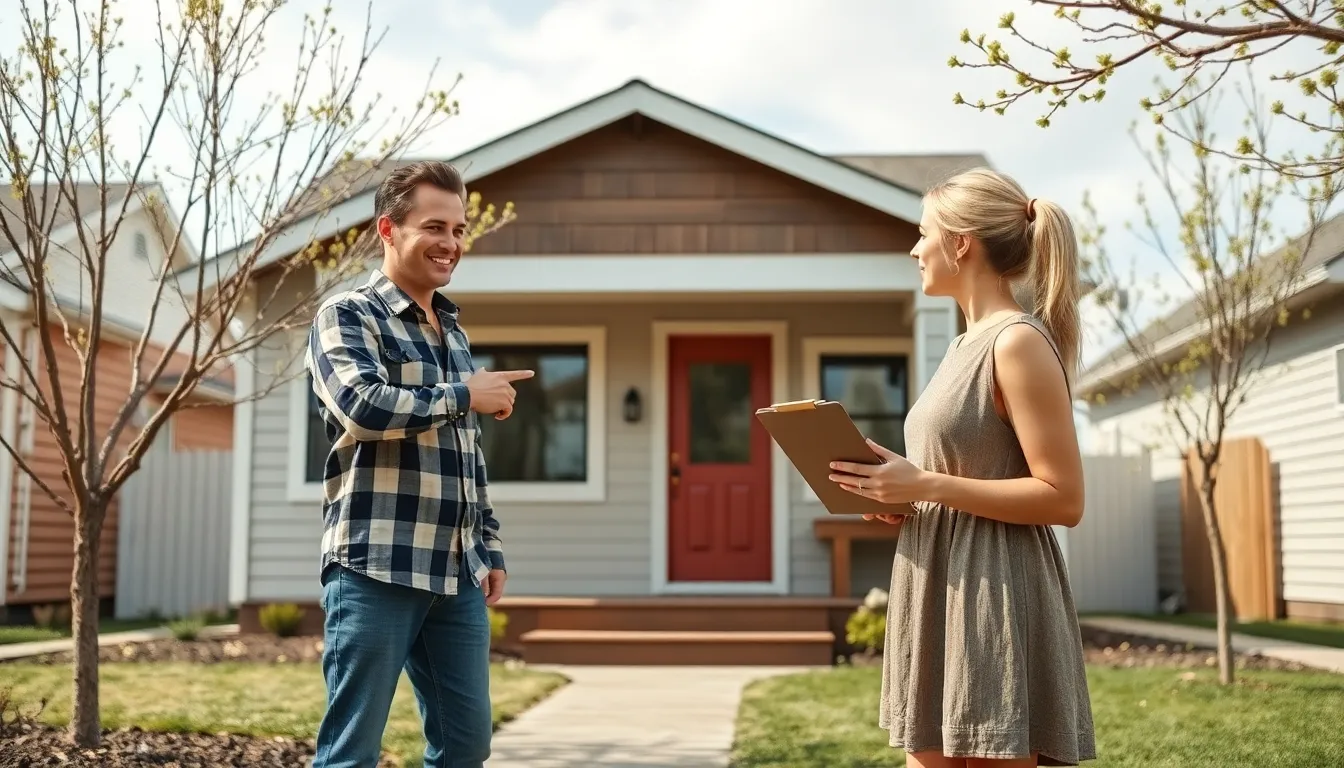In today’s fast-paced world, the quest for the perfect starter home can feel like searching for a unicorn in a haystack. With rising prices and endless options, finding that cozy nest often seems more like a game of hide-and-seek. But fear not! The right starter home is out there, waiting to transform from a mere dream into a delightful reality.
Table of Contents
ToggleOverview of Starter Homes
Starter homes serve as an entry point into homeownership. Typically, these properties cater to first-time buyers, offering affordability alongside essential amenities. This type of housing often includes compact layouts that maximize space efficiently.
Affordability remains a key characteristic. As prices soar in many markets, potential buyers frequently seek out properties priced below the median for the area. These homes can vary widely in style, from quaint bungalows to modern townhouses, appealing to diverse needs.
Location plays a critical role in the desirability of starter homes. Often situated in emerging neighborhoods, these properties provide access to schools, parks, and shopping. Proximity to public transportation can further enhance their appeal, making commutes more manageable.
Home features typically include a small yard, limited maintenance requirements, and essential utilities. New buyers look for move-in ready conditions, which often translates to updated kitchens and bathrooms.
Investment potential also factors into the decision-making process. Many buyers view starter homes as gateways to more significant equity opportunities in the real estate market. Investing in a starter home can lead to price appreciation as neighborhoods develop and improve over time.
Understanding market trends is essential for buyers. Familiarity with local pricing, property values, and inventory levels empowers informed choices. Real estate agents often provide essential insights, guiding buyers towards numerous options tailored to their specific criteria.
Ultimately, finding a starter home involves balancing budget, location, and personal preferences. With a strategic approach, homeowners can discover the right property that meets their needs and fosters long-term investment potential.
Features of a Starter Home


Starter homes cater to first-time buyers, emphasizing practicality and essential features. They commonly include smaller square footage, efficient layouts, and amenities that suit varied lifestyles.
Size and Layout
Size considers the needs of new homeowners. Compact spaces enhance livability, allowing for manageable upkeep. Open floor plans often create a sense of spaciousness. The layout typically focuses on functionality, making the most of available square footage. Areas such as the kitchen and living room usually stand at the forefront, emphasizing social interaction and modern convenience. Bedrooms often provide enough space for essential furnishings while remaining cozy.
Affordability
Affordability remains a defining feature of starter homes. Buyers typically aim for homes priced below the local median, ensuring financial feasibility. Access to various financing options and incentive programs often helps first-time buyers enter the market. Maintenance costs generally stay low, allowing homeowners to manage their budgets effectively. Purchasing a starter home often represents a strategic investment, enabling buyers to build equity over time.
Advantages of Buying a Starter Home
Buying a starter home presents several advantages that can significantly impact first-time buyers.
Building Equity
Purchasing a starter home allows buyers to build equity over time. As property values typically appreciate, homeowners can increase their investment. This equity can serve as a financial resource for future purchases, such as upgrading to larger homes. The process of paying down a mortgage further bolsters equity, creating a sense of financial security. First-time buyers can take advantage of this opportunity to eventually move into a home that better suits their evolving needs.
Flexibility in Lifestyle
Starter homes offer flexibility in lifestyle choices. Smaller spaces often mean lower maintenance requirements, allowing homeowners more time for personal pursuits. Buyers can customize their homes without overwhelming expenses, enabling them to personalize living areas. Many starter homes are located near vibrant communities with easy access to amenities and entertainment options. The compact layout typically supports a dynamic lifestyle, accommodating various life changes such as job relocations or growing families.
Common Challenges
Homebuyers often face several challenges when searching for the right starter home. Understanding these obstacles helps navigate the complex buying process more effectively.
Limited Space
Limited space poses a significant challenge for many starter home buyers. Smaller homes frequently come with compact layouts that might not accommodate future needs. Buyers might find it difficult to store belongings or host gatherings comfortably. Efficient storage solutions become essential, as well-designed spaces can maximize functionality. Some homeowners opt for multi-purpose furniture to create flexibility within limited square footage. Additionally, families may need to rethink their lifestyle to make the most of available space.
Resale Value Concerns
Resale value represents another crucial consideration for first-time buyers. Many worry about potential depreciation in property value, especially in a fluctuating market. Choosing a home in an emerging neighborhood can mitigate this risk. Properties in these areas often appreciate faster due to growing demand. Buyers should research local market trends and comparable sales to make informed decisions. Understanding neighborhood dynamics enhances the ability to predict future value. Investing in a starter home also requires consideration of improvements that increase resale potential, such as updates to kitchens and bathrooms.
Tips for First-Time Buyers
Buying a starter home involves several important considerations. Budgeting and location significantly impact the buying experience for first-time buyers.
Budgeting for a Starter Home
Set a realistic budget before beginning the search for a starter home. Evaluating current income, expenses, and potential mortgage rates helps establish a clear financial picture. Buyers should consider additional costs such as property taxes, maintenance, and homeowner’s insurance. Researching local housing markets reveals the potential for affordable options within the budget. Exploring financing options like FHA loans can provide pathways to homeownership with lower down payments. It’s essential to maintain some flexibility within the budget to accommodate unexpected expenses that may arise.
Choosing the Right Location
The location of a starter home significantly influences its long-term value and livability. Prioritize neighborhoods with access to essential services, schools, and public transportation. Emerging neighborhoods often present opportunities for appreciation due to growing demand. Proximity to parks and recreational areas enhances quality of life for residents. Visiting various neighborhoods helps buyers gauge the community atmosphere and available amenities. Researching local crime rates and school district ratings can provide further insights into the area’s viability. Ultimately, choosing the right location improves both the living experience and potential resale value.





